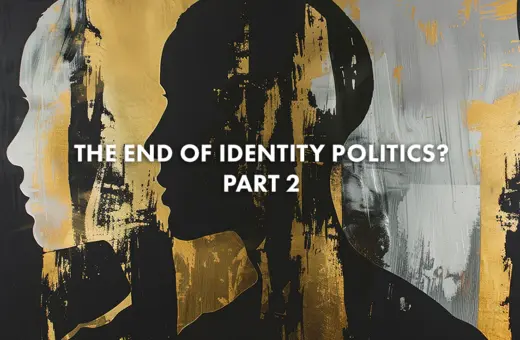Desire is aroused in us from all directions. We are seduced by more than just potential partners. We are seduced by politicians, advertisers, cult leaders… and this seduction holds moral weight. Sarah LaChance Adams argues for the rules of engagement of a more ethical seduction.
The word seduction originates from the Latin meaning to “lead astray.” Dictionaries say seduction involves trickery or deception, that to seduce involves convincing someone to do something they would not otherwise, especially sexual activity.
In short, seduction is far from moral neutrality.
But could seduction be consensual, mutual, even ethical? To answer this question adequately, I rethink the narrow definition it has been given. I describe seduction as when one tries to create a desire in another for greater proximity to oneself.
___
In contemporary life, desire is aroused in us from all directions. I walk past a café and smell coffee. I see a beautiful body. I hear a song that fills me with longing.
___
In contemporary life, desire is aroused in us from all directions. I walk past a café and smell coffee. I see a beautiful body. I hear a song that fills me with longing. Marketers, cult leaders, politicians, pick-up artists, and others exploit our tendency to be called hither. These seducers deliberately want to render us passive, nullify our agency, and thus, take away our ability to meaningfully consent. They have clear objectives in mind; they want our money, our allegiance, our votes, and our sexual submission.
An added complication is that our culture has tremendous influence on what we find alluring in the first place; and culture is not unbiased either. Because erotic desires are experienced so viscerally, it is easy to ignore culture’s role in their formation. While they can seem natural, instinctive and, even justified, our conditioning comes from all angles: family, religion, media, and friends. Much like Pavlov’s dogs, we can be trained to respond (salivate) to a conditioned stimulus (the ringing of a bell) that has been repeatedly associated with meeting a physiological need (the satisfaction of hunger). In contemporary culture, many people’s erotic responses are conditioned by the repeated pairing of escalating violence with intensifying romance, sexual stimulation, and climax. This happens in racist, heteronormative, misogynistic pornography. However, the trope also abounds in horror films, situation comedies, advertising, music videos, Disney movies, and more. It works even when one’s own demographic is the object of exploitation.
Does this mean that seduction inevitably summons our perverse programming? It does seem wise to be suspicious of desires that contribute to oppression. Feminist philosopher Sandra Bartky proposes that women resist enjoyment of their objectification, refraining from masochistic fantasies. Similarly, Alison Jagger suggests that we embrace our counter-hegemonic “outlaw emotions.” They believe that we can cultivate the desires that are conducive to our flourishing. I agree that we can at least be informed about their origins and consequences, recognizing that to reinterpret and revalue them could be liberating. Rather than understanding them as natural and inevitable, we might find that if they were created, then they can be recreated. This revaluation of values (to borrow Nietzsche’s notion) is a nascent opportunity within consensual, ethical seduction.





















Join the conversation